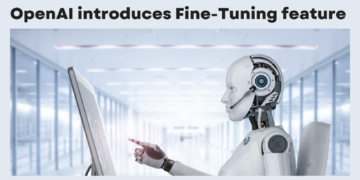Ambient AI, also known as ambient intelligence, refers to systems that can sense their environment, adapt to changes, and interact with people in a natural and intuitive manner. In healthcare, these systems can range from smartwatches that monitor vital signs to sophisticated platforms that automate administrative tasks.
Applications of Ambient AI in Healthcare
- Patient Monitoring: Ambient AI-powered devices can continuously track patients’ health parameters, such as heart rate, blood pressure, and glucose levels. This enables early detection of anomalies and timely intervention.
- Medication Management: Smart pill dispensers can ensure patients adhere to their medication regimens by providing reminders and tracking adherence.
- Remote Patient Monitoring: For patients with chronic conditions, ambient AI can facilitate remote monitoring, reducing the need for frequent hospital visits and improving care quality.
- Clinical Workflow Optimization: It can automate tasks like transcription and documentation, freeing up healthcare providers to focus on patient care.
- Personalized Care: By analyzing patient data and preferences, the technology can deliver personalized care plans, improving treatment outcomes.
Benefits of Ambient AI
- Improved Patient Outcomes: Early detection of health issues, timely interventions, and personalized care plans can lead to better patient outcomes.
- Enhanced Efficiency: Automation of routine tasks can streamline workflows and reduce administrative burdens, leading to increased efficiency.
- Reduced Costs: Ambient AI can help reduce healthcare costs by preventing complications, improving care coordination, and optimizing resource utilization.
- Improved Patient Experience: Personalized care, convenient access to healthcare services, and reduced wait times can enhance the overall patient experience.
Challenges and Considerations
Collecting and storing patient data raises concerns about privacy and data security. Robust measures must be in place to protect sensitive information. Current ambient AI technologies may have limitations in terms of accuracy, reliability, and adaptability to diverse healthcare settings. Ensuring that healthcare providers and patients are comfortable with and willing to use the technologies is essential for successful implementation. The use of AI in healthcare raises ethical questions, such as the potential for bias, job displacement, and the impact on human-to-human interaction.
As technology continues to advance, we can expect to see even more sophisticated and innovative applications. By addressing privacy concerns, overcoming technical limitations, and fostering user adoption, ambient AI can become a transformative force in healthcare.



























